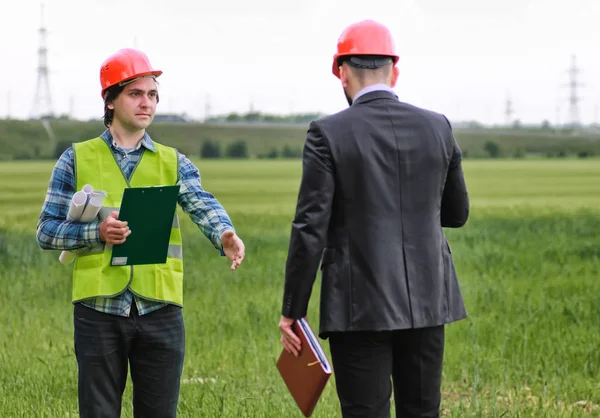The Ultimate Guide To Environmental Consulting: What You Need To Know
Environmental consulting is a crucial field that intersects with many industries, aiming to create sustainable solutions and ensuring compliance with environmental regulations. Whether you are a business owner looking to minimize your environmental impact or an aspiring environmental consultant, understanding the intricacies of this profession is essential. This ultimate guide will delve into what environmental consulting entails, the roles and responsibilities of an environmental consultant, the benefits of hiring one, and the steps to becoming an environmental consultant.
What is Environmental Consulting?
Environmental consulting involves providing expert advice and solutions to organizations regarding environmental issues. These issues range from waste management and pollution control to sustainable practices and regulatory compliance. Environmental consultants play a vital role in helping businesses understand and manage their environmental responsibilities.
Roles and Responsibilities of an Environmental Consultant
Environmental Impact Assessments (EIAs)
One of the primary tasks of an environmental consultant is to conduct Environmental Impact Assessments (EIAs). These assessments evaluate the potential environmental effects of proposed projects or developments, ensuring that any negative impacts are identified and mitigated.
Regulatory Compliance
Environmental consultants ensure that businesses comply with local, state, and federal environmental regulations. This involves monitoring and reporting on compliance, as well as advising on necessary changes to meet legal requirements.
Pollution Control and Waste Management
Consultants help businesses develop strategies to reduce pollution and manage waste effectively. This includes designing and implementing waste management systems, pollution control measures, and recycling programs.

Sustainability Consulting
Sustainability is a growing focus in environmental consulting. Consultants work with organizations to develop and implement sustainable practices that reduce their environmental footprint. This can involve energy audits, resource conservation strategies, and the adoption of green technologies.
Benefits of Hiring an Environmental Consultant
- Expertise and Knowledge: Environmental consultants bring a wealth of expertise and knowledge to the table. Their understanding of environmental laws, regulations, and best practices ensures that businesses can operate sustainably and legally.
- Risk Management: By identifying potential environmental risks and developing strategies to mitigate them, consultants help businesses avoid costly fines, legal issues, and reputational damage.
- Cost Savings: Implementing sustainable practices often leads to significant cost savings. Consultants can identify efficiency improvements that reduce energy consumption, waste, and overall operational costs.
- Enhanced Reputation: Businesses that demonstrate a commitment to environmental responsibility can enhance their reputation among customers, investors, and the community. This can lead to increased trust and loyalty.
Steps to Becoming an Environmental Consultant
Educational Background
A strong educational foundation is essential for a career in environmental consulting. Most consultants have a bachelor's degree in environmental science, biology, chemistry, or a related field. Advanced degrees, such as a master's or Ph.D., can provide a competitive edge.
Gain Relevant Experience
Experience is crucial in this field. Internships, volunteer work, and entry-level positions in environmental organizations or related industries can provide valuable hands-on experience.
Certifications and Licenses
Obtaining certifications, such as the Certified Environmental Professional (CEP) or Leadership in Energy and Environmental Design (LEED) accreditation, can enhance your credentials and marketability.

Networking and Professional Development
Building a professional network and staying updated with industry trends is vital. Joining professional organizations, attending conferences, and participating in continuing education opportunities can help you stay ahead in this dynamic field.
Challenges in Environmental Consulting
Regulatory Changes:
Environmental regulations are constantly evolving, and keeping up with these changes can be challenging. Consultants must stay informed about new laws and policies to ensure compliance.
Public Perception and Client Expectations:
Balancing the expectations of clients and the public can be tricky. Consultants must navigate differing viewpoints and find solutions that satisfy both parties.
Technical and Scientific Complexity:
The technical and scientific nature of environmental consulting requires a deep understanding of complex concepts and the ability to communicate them effectively to non-experts.
Future Trends in Environmental Consulting
Climate Change and Sustainability
As the urgency of addressing climate change grows, the demand for sustainability consulting is expected to rise. Consultants will play a key role in helping businesses transition to low-carbon operations and adopt sustainable practices.
Technological Advancements
Advancements in technology, such as remote sensing, data analytics, and environmental monitoring tools, are transforming the field. These technologies enable more accurate assessments and efficient solutions.
Circular Economy
The concept of a circular economy, which focuses on minimizing waste and making the most of resources, is gaining traction. Environmental consultants will be instrumental in helping organizations implement circular economy principles.
205/134 Cambridge St, Collingwood VIC 3066, Australia
Phone: 613-9415-8002

